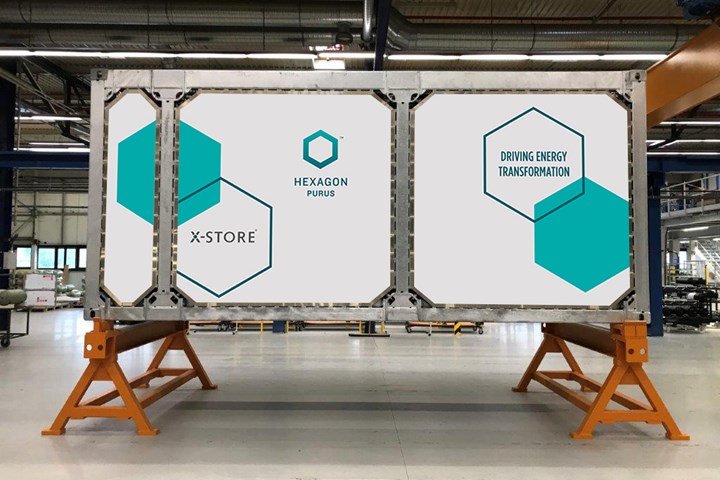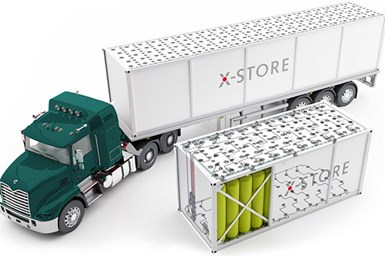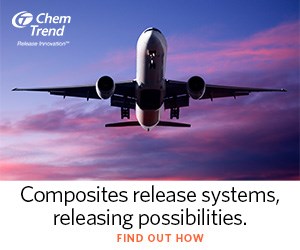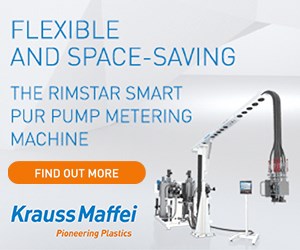Hexagon Purus receives contract to provide hydrogen transport modules in U.S.
The all-composite 20-foot modules can carry about 600 kilograms of hydrogen and are due for delivery in the third quarter of 2021.

Source | Hexagon Purus
Hexagon Purus GmbH (Kassel, Germany) a Hexagon Composites company that specializes in lightweight composite components and systems, announced on July 18 that it has signed a contract with a major U.S. hydrogen fuel supplier and hydrogen refueling station operator to provide multiple X-Store all-composite transport modules for the distribution of high-pressure hydrogen gas. The contract has an estimated value of $4.8 million USD (approximately $45 million NOK) and includes additional purchase options that, if exercised, will bring the total value of the contract to approximately $7 million USD (approximately $65 million NOK).
According to the company, the contract represents the first North American customer for Hexagon’s X-Store line of transport modules for high pressure hydrogen gas. The purchased transport modules are composed of Hexagon’s proprietary, lightweight, Type 4,500 bar pressure vessels. The 20-foot modules are reportedly designed to carry about 600 kilograms of hydrogen, reducing transportation cost on a per kilogram of hydrogen basis, and further contributes to the commercial viability of fuel-cell vehicles.

For illustration purposes only. Source | Hexagon Purus
Hexagon notes that with a private fuel cell vehicle fleet of over 8,000, the highest in the world, and over 40 retail hydrogen refueling stations, the number of hydrogen refueling stations in the United States is expected to double over the next few years. The modules are due to be delivered in the third quarter of 2021.
“The X-Store product will be an economic game-changer in the North American hydrogen fuel market because higher payload capacities mean lower overall transportation costs,” says Michael Kleschinski, executive vice president of Hexagon Purus. “The X-Store is already widely used in Europe and the rest of the world via a blue-chip customer base.”
Related Content
-
The making of carbon fiber
A look at the process by which precursor becomes carbon fiber through a careful (and mostly proprietary) manipulation of temperature and tension.
-
Materials & Processes: Resin matrices for composites
The matrix binds the fiber reinforcement, gives the composite component its shape and determines its surface quality. A composite matrix may be a polymer, ceramic, metal or carbon. Here’s a guide to selection.
-
Why aren't composites synonymous with infrastructure?
The U.S. seems poised to invest heavily in infrastructure. Can the composites industry rise to the occasion?












